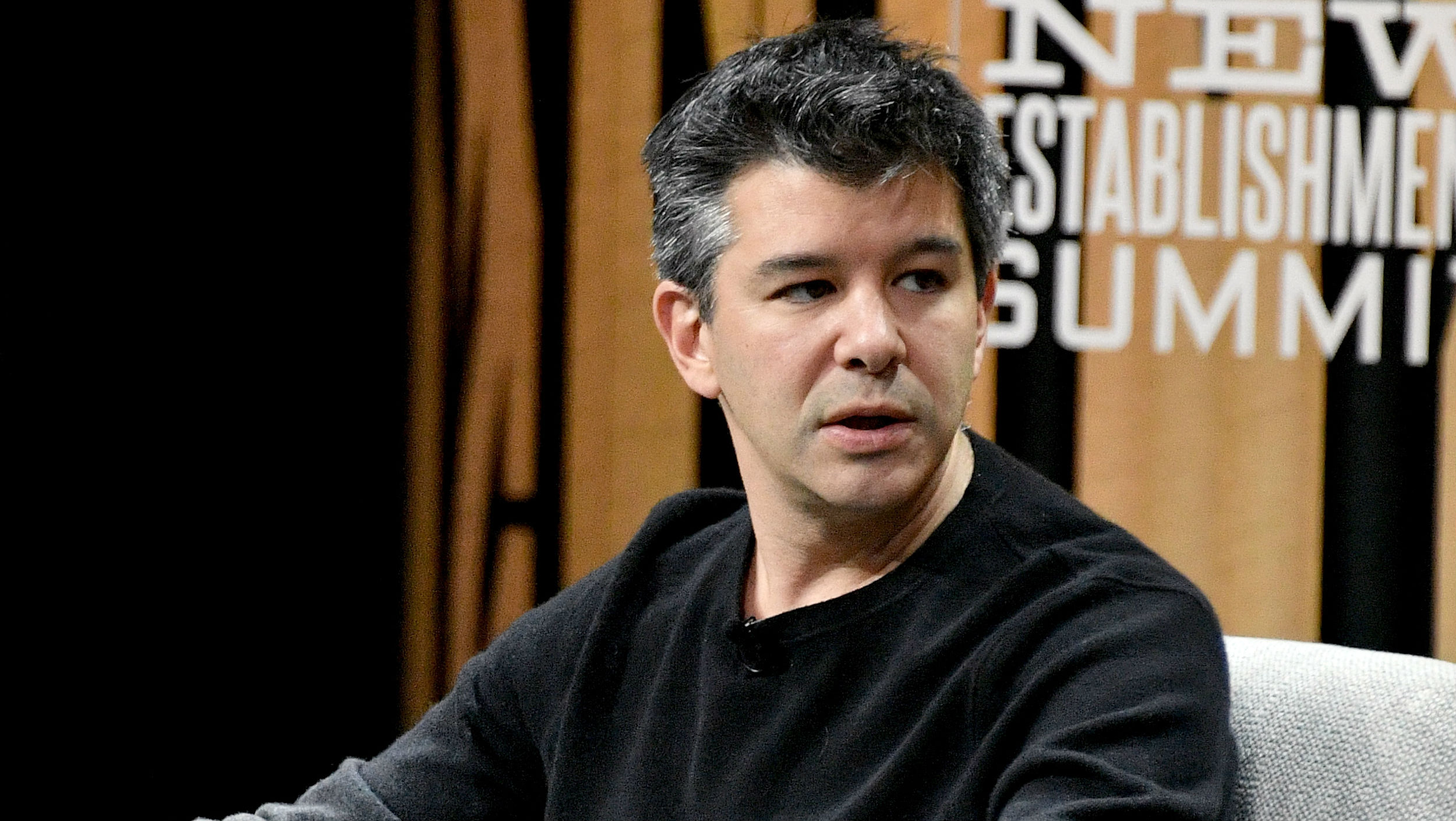Uber boss leaves Trump advisory role after boycott
Travis Kalanick says the position was never meant to be an endorsement of the president's agenda

A free daily email with the biggest news stories of the day – and the best features from TheWeek.com
You are now subscribed
Your newsletter sign-up was successful
Uber's chief executive Travis Kalanick has announced he will be withdrawing from the US President 's economic advisory council following a massive online backlash against the company.
Kalanick revealed his decision in a memo to Uber staff, but defended himself by saying that his role on Donald Trump's team had been "misinterpreted".
"Joining the [advisory] group was not meant to be an endorsement of the President or his agenda but unfortunately it has been misinterpreted to be exactly that," Kalanick said.
The Week
Escape your echo chamber. Get the facts behind the news, plus analysis from multiple perspectives.

Sign up for The Week's Free Newsletters
From our morning news briefing to a weekly Good News Newsletter, get the best of The Week delivered directly to your inbox.
From our morning news briefing to a weekly Good News Newsletter, get the best of The Week delivered directly to your inbox.
Pressure to step down from Trump's team had been growing in the wake of the president's introduction of strict immigration and refugee bans in the US, which could affect many of Uber's drivers.
The New York Times reports that at least two Uber employees asked Kalanick, "what would it take for you to quit the economic council?", during a regularly scheduled "all-hands" meeting at the company's headquarters on Tuesday.
Kalanick has since announced a $3 million (£2.4m) "legal defence fund" to assist any of the company's drivers affected by the bans.
The company is also battling an online campaign after it "appeared to defy a taxi strike by removing surge pricing – the mechanism by which prices go up on the service when demand is high" during anti-Trump protests at several major airports in the US, the BBC says.
A free daily email with the biggest news stories of the day – and the best features from TheWeek.com
"Uber has not revealed how many users deleted their accounts, but it was enough that the company implemented an automated process to handle the demand," The Guardian reports.
-
 Health insurance: Premiums soar as ACA subsidies end
Health insurance: Premiums soar as ACA subsidies endFeature 1.4 million people have dropped coverage
-
 Anthropic: AI triggers the ‘SaaSpocalypse’
Anthropic: AI triggers the ‘SaaSpocalypse’Feature A grim reaper for software services?
-
 NIH director Bhattacharya tapped as acting CDC head
NIH director Bhattacharya tapped as acting CDC headSpeed Read Jay Bhattacharya, a critic of the CDC’s Covid-19 response, will now lead the Centers for Disease Control and Prevention
-
 Labour shortages: the ‘most urgent problem’ facing the UK economy right now
Labour shortages: the ‘most urgent problem’ facing the UK economy right nowSpeed Read Britain is currently in the grip of an ‘employment crisis’
-
 Will the energy war hurt Europe more than Russia?
Will the energy war hurt Europe more than Russia?Speed Read European Commission proposes a total ban on Russian oil
-
 Will Elon Musk manage to take over Twitter?
Will Elon Musk manage to take over Twitter?Speed Read The world’s richest man has launched a hostile takeover bid worth $43bn
-
 Shoppers urged not to buy into dodgy Black Friday deals
Shoppers urged not to buy into dodgy Black Friday dealsSpeed Read Consumer watchdog says better prices can be had on most of the so-called bargain offers
-
 Ryanair: readying for departure from London
Ryanair: readying for departure from LondonSpeed Read Plans to delist Ryanair from the London Stock Exchange could spell ‘another blow’ to the ‘dwindling’ London market
-
 Out of fashion: Asos ‘curse’ has struck again
Out of fashion: Asos ‘curse’ has struck againSpeed Read Share price tumbles following the departure of CEO Nick Beighton
-
 Universal Music’s blockbuster listing: don’t stop me now…
Universal Music’s blockbuster listing: don’t stop me now…Speed Read Investors are betting heavily that the ‘boom in music streaming’, which has transformed Universal’s fortunes, ‘still has a long way to go’
-
 EasyJet/Wizz: battle for air supremacy
EasyJet/Wizz: battle for air supremacySpeed Read ‘Wizz’s cheeky takeover bid will have come as a blow to the corporate ego’